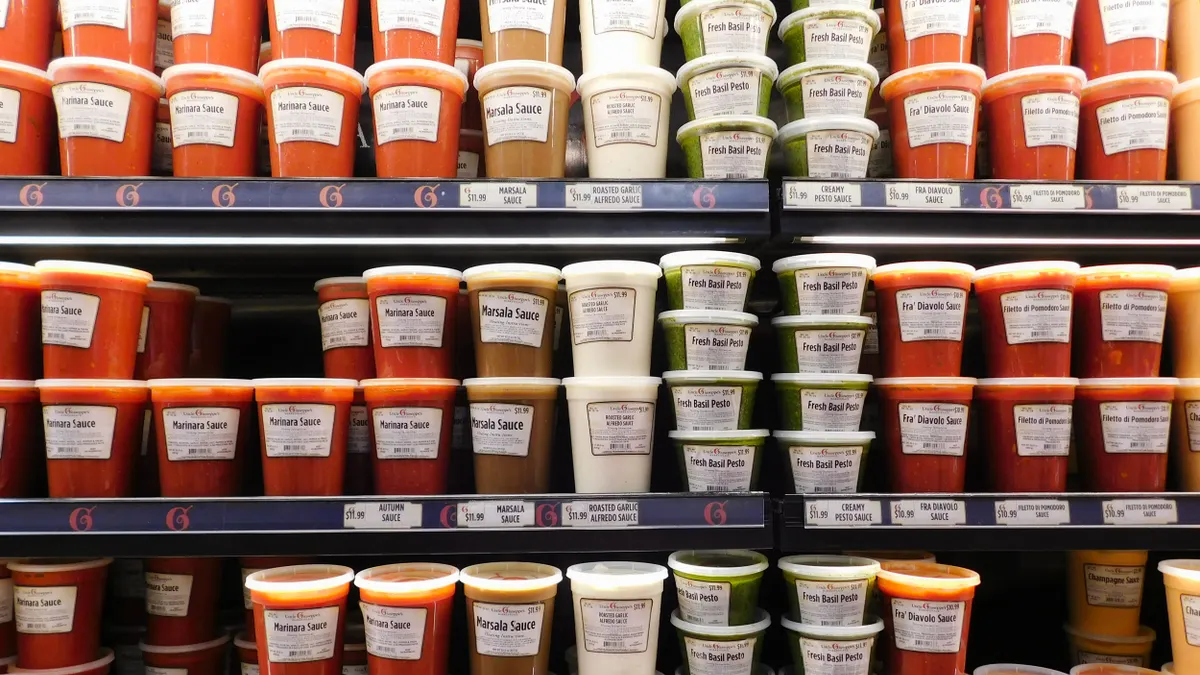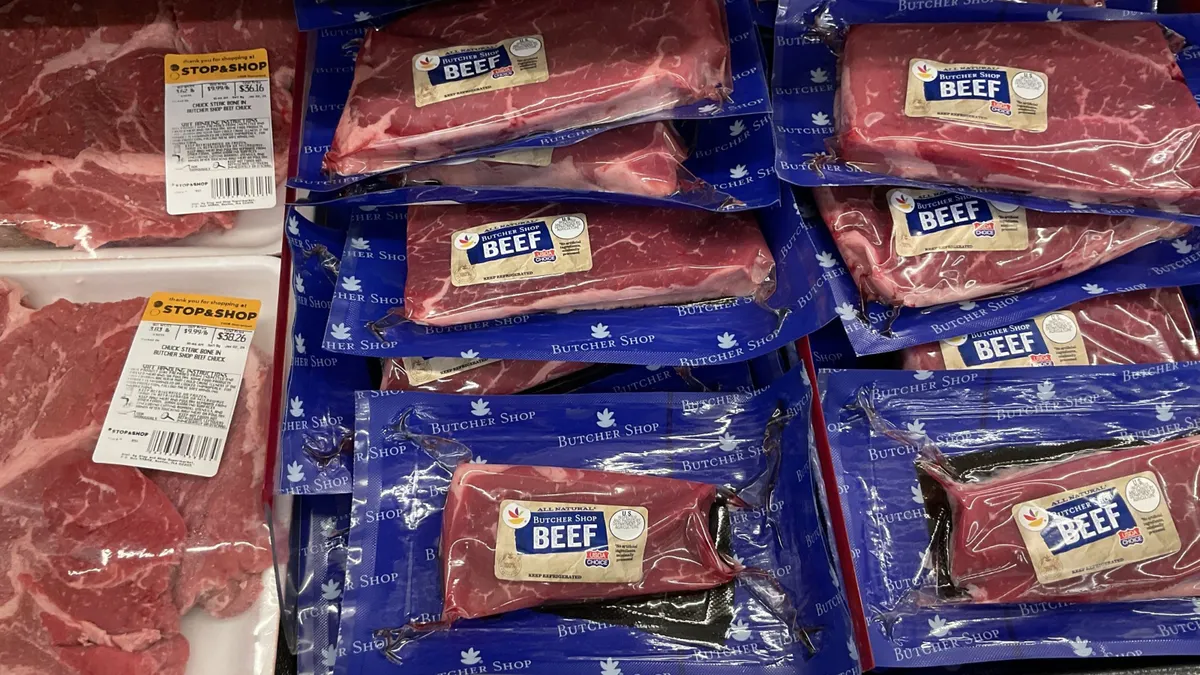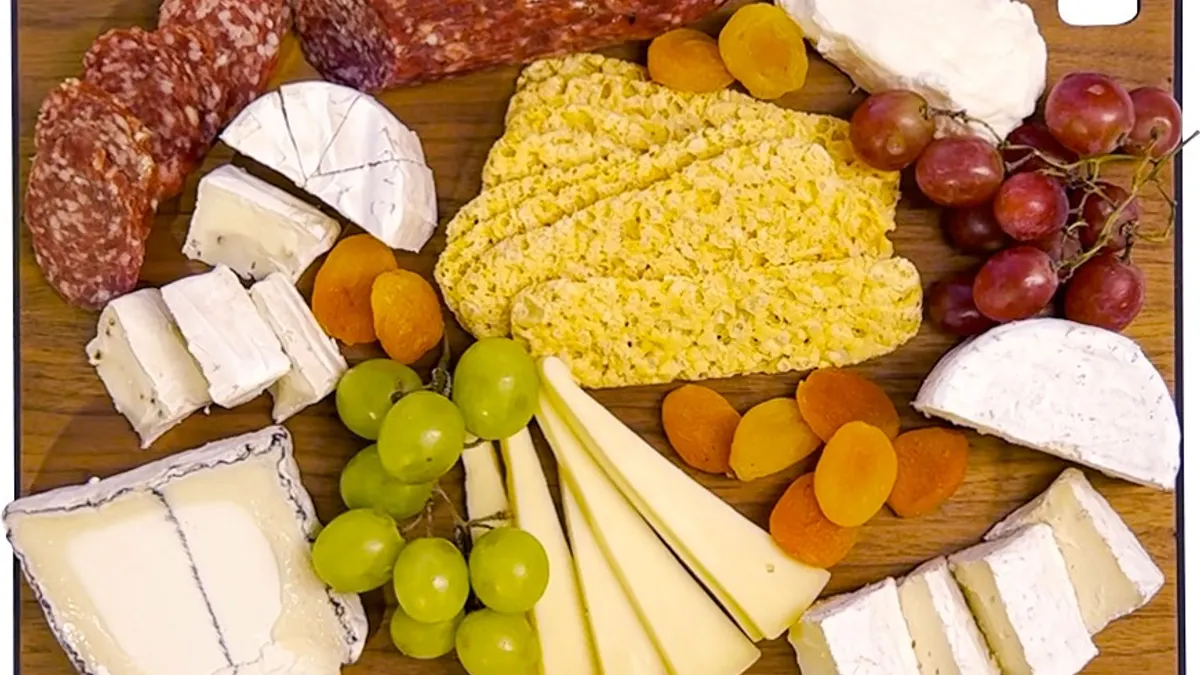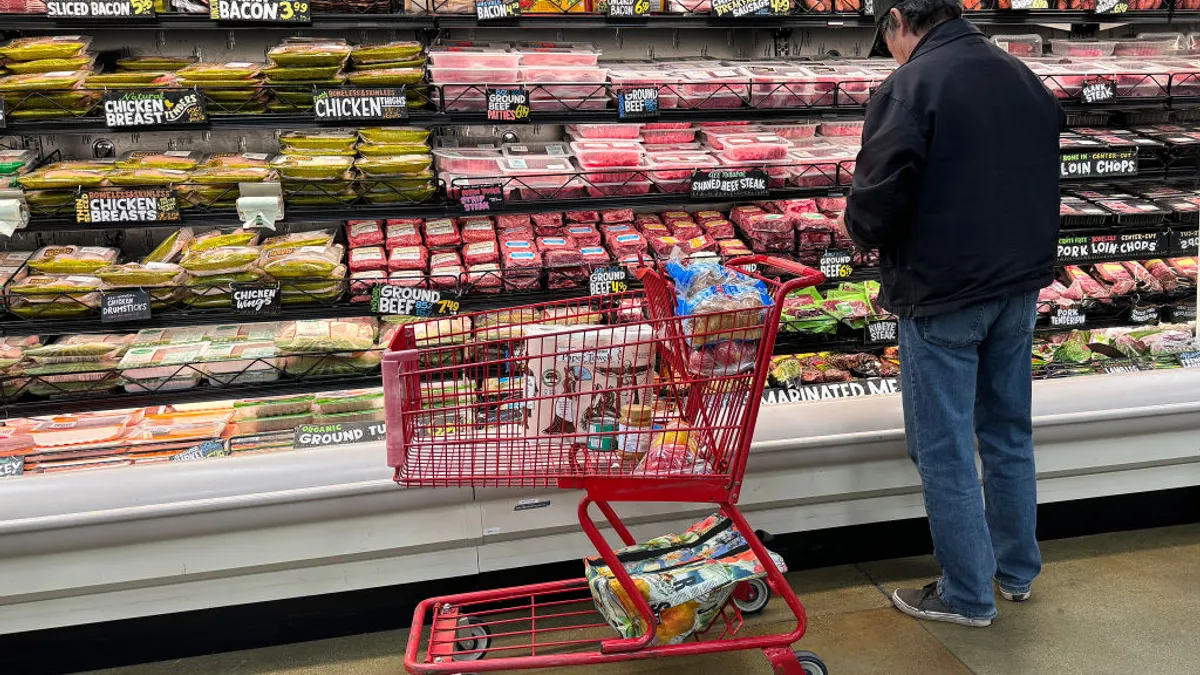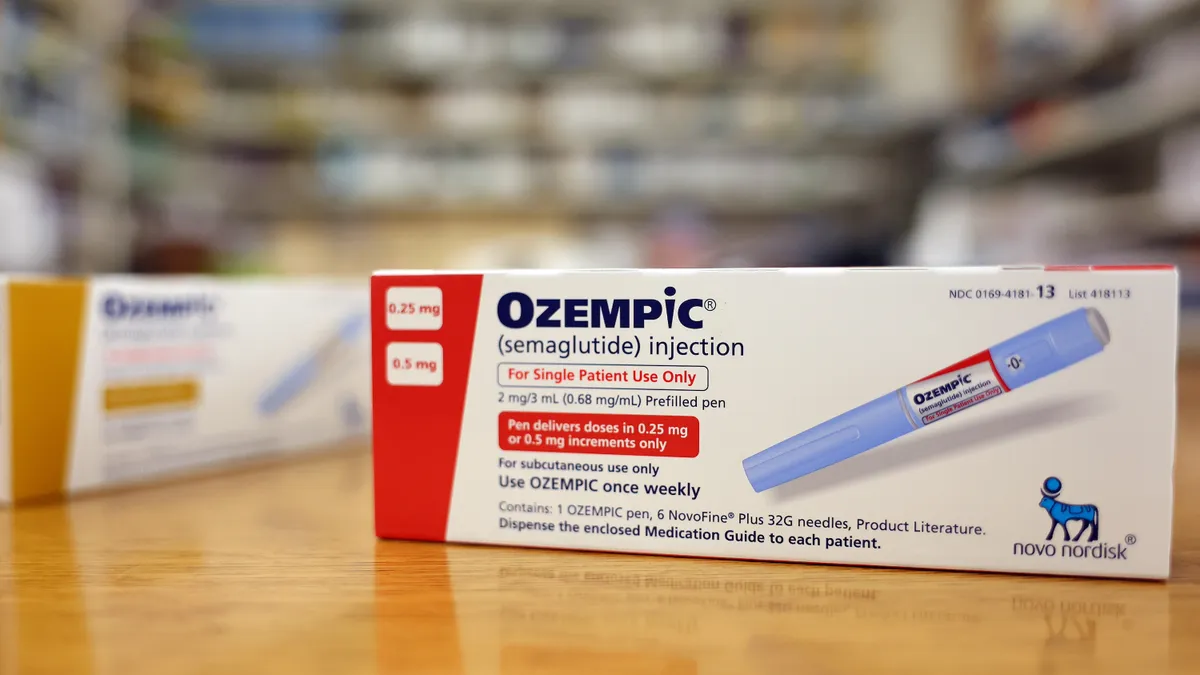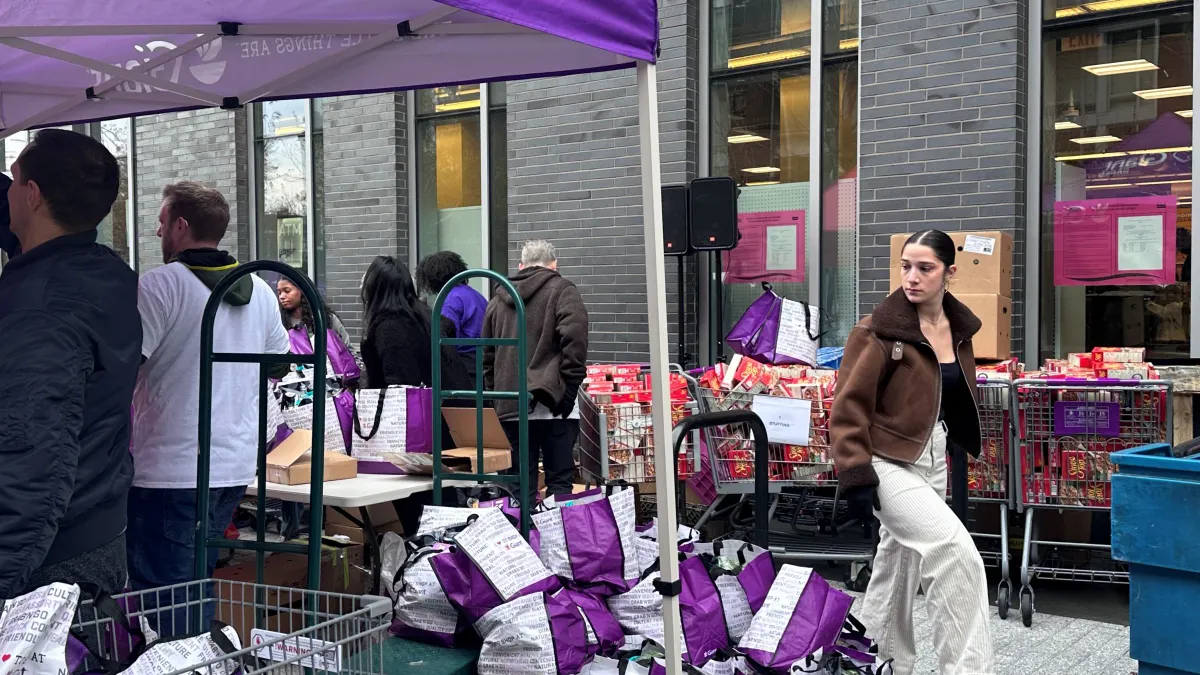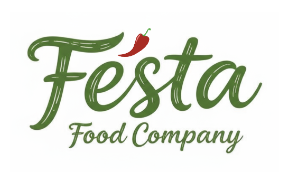It's been a rough 90 days since United Natural Foods took over Supervalu. The company reported earnings far below expectations early last month and has been fielding inquiries from anxious investors over how it will integrate a troubled Supervalu, while simultaneously growing the business and paying down debt. UNFI's stock price has tumbled nearly 50% over the past three months.
During the company's investor day conference yesterday in Orlando, UNFI officials sought to steady the ship. They outlined a complex growth and integration plan that seeks to provide a broader selection of products for retailers while at the same time boosting efficiency and wringing extra costs out of the system.
Altogether, UNFI believes its plan will boost net sales from just over $20 billion and $650 million in adjusted EBITDA expected this year to $30 billion in sales and $1 billion in earnings over the next three years. The earnings outlook for this year came in higher than analysts expected, sending UNFI's stock price up nearly 30% yesterday.
Investor optimism may be short-lived, however, with the company's stock price falling more than 16% by Thursday afternoon.
President and CEO Steve Spinner acknowledged the integration of Supervalu, which has struggled with profitability and is currently digesting two acquisitions of its own, will be difficult. Rather than opt for a gradual melding of the two companies' operations, UNFI has decided to accelerate the integration, he said.
"There's no perfect acquisition, but acquiring Supervalu puts us in a position to win," Spinner said.
Cross-selling opportunities
The greatest asset the combined companies believe they have is a robust product selection across channels and categories — from natural and organic produce to conventional groceries, and everything in between. UNFI has legacy strength in natural and organic products, while Supervalu has its roots in conventional grocery and fresh protein distribution. Both have made acquisitions in recent years to bolster their offerings.
Currently UNFI does $3 billion in natural produce sales, $1.5 billion in produce and $1.5 billion in private brands.
UNFI's biggest growth opportunity right now, officials said, is cross-selling retailers on products outside their core focus. It's well established that mainstream grocers are looking for more natural and organic offerings, but specialty grocers are increasingly looking for conventional offerings, they said. This reflects consumers' desire to build hybrid carts that include both natural and conventional products.
Sales of natural and organic products at conventional retailers grew 7.1% over the 52-week period ending Nov. 4, according to SPINS data cited by UNFI. Sales of conventional products at natural and organic stores rose 8.9% during the same period.
Retailers, Spinner said, want to be the one-stop shop for customers. To that end, UNFI is also playing up its private label offerings, which includes 5,000 SKUs across brands like Wild Harvest and Shoppers Value, along with a new turnkey e-commerce service and administrative support services like payroll management and coupon distribution.
"Even the most rigid, ingredient-focused retailer is having to consider Tide these days," Spinner said.
However, with this opportunity come numerous challenges, officials conceded. UNFI has long relied on Whole Foods — a large, but low-margin business — for the lion's share of its sales, and that continues with the grocer now comprising 16% of sales, while no other supplier commands more than 5%. Suppliers have also been dealing with strained capacity, high freight costs and an inability to pass along higher prices to retailers.
Supervalu, meanwhile, has contributed softer-than-anticipated sales so far, raising fears that the new acquisition will become an anchor on the business.
"There’s no perfect acquisition, but acquiring Supervalu puts us in a position to win."

Steve Spinner
President and CEO, UNFI
Spinner and others chalked up Supervalu's sales underperformance in part to a "malaise" as the distributor has been in "deal mode," said Sean Griffin, Supervalu's CEO. UNFI expects performance to improve as the two companies continue to integrate. Spinner said he's also optimistic due to inflation, which the company has seen tick up the past two quarters and expects to stay consistent throughout the year.
"It's been nice to see inflation creeping back in here over the past several months,” said Mike Zechmeister, UNFI's chief financial officer.
Harvesting synergies
To take advantage of cross-selling opportunities and make supplying more efficient, UNFI plans to optimize its network of distribution centers. The company currently operates 60 DCs — 33 of which are legacy UNFI, 27 of which belong to Supervalu.
One part of this involves consolidating distribution facilities. In the Pacific Northwest, for instance, UNFI and Supervalu plan to winnow their combined DCs down from five to two. Doing so will eliminate duplicate processes, while still allowing for high-speed fulfillment, company officials said.
At the same time, UNFI aims to optimize its distribution network by linking facilities that handle fast-moving goods with larger ones that handle slower-moving products. A DC in Joliet, Illinois, is slated to become a distribution hub and slow-moving product facility that services several high-velocity facilities in surrounding states.
"We shuttle slower-moving goods to the high-velocity DC, we marry those categories and get them out to the customer," said Spinner.
Griffin, who formerly served as UNFI's chief operating officer, said Supervalu's distribution network is unnecessarily complex, by his evaluation. "I have a goal of simplifying that," he said.
UNFI officials said they will capitalize on the companies' respective strengths. Supervalu's technology systems are superior to UNFI's, Griffin said, and will get integrated into the broader business. UNFI, meanwhile, has stronger key-performance indicators for its various processes.
By streamlining its various systems along with supplier agreements and its distribution network, UNFI plans to see $185 million in annual cost synergies by 2022.
In addition, UNFI plans to boost its investments in automation. Facilities in Southern California and Pennsylvania currently use automated picking systems to prepare orders, and Mario Adamy, national vice president of warehousing and automation for UNFI, said the company aims to spread that technology across its network.
"We believe this model scales very well to other regions," he said, noting that automation also improves order accuracy, energy efficiency and other metrics.
What about retail?
Spinner said he's confident UNFI can sell off its remaining retail banners — Cub Foods and Shoppers Food & Pharmacy — by the end of this year. Shoppers, he said, is "very far down the path" on an acquisition deal, which the company anticipates being ready to discuss as soon as this spring or summer.
UNFI has stated Shoppers would likely be split up among multiple buyers, given its sites in the competitive mid-Atlantic region. Meanwhile, UNFI is holding out for a single buyer for its Cub banner and plans to get a distribution agreement, as well. The market share leader in the Twin Cities market, Cub has come under increasing pressure in recent years, making it unclear who exactly would acquire the chain. Hy-Vee, a growing presence in the region, has said it isn't interested.
Despite there being an unclear path to acquisition, Spinner said UNFI believes strongly in the value of Cub stores.
"We're not going to give them away," he said.
Cash raised from retail sales will flow toward UNFI's efforts to pay down its debt accrued in the $2.9 billion deal — including $1.6 billion worth of Supervalu debt. In addition, the company plans to sell off surplus property and other assets totaling between $100 million and $150 million. By 2022, UNFI aims to reduce its debt-to-EBITDA ratio from 5.1x to 2.9x.
UNFI officials said the year ahead will be difficult, but expressed optimism for the newly formed company. A new logo and slogan — "Better Food. Better Future" — reflect this intention to enter a new chapter. What comes next, they said, is execution.
"We know it's not easy and we know we're going to make mistakes, but this is what we do," said Griffin. “We do distribution.”







